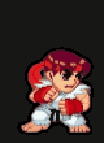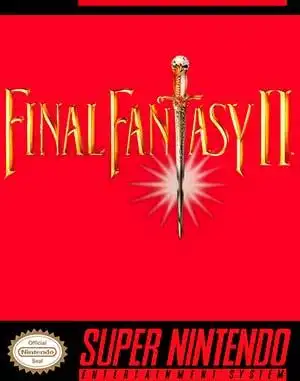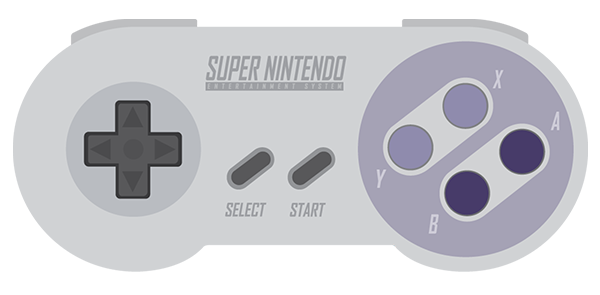Final Fantasy II: The Experimental NES RPG That Broke the Mold
Remember the early days of the Final Fantasy series? After the foundational quest of the first game, Square decided to take a sharp left turn with Final Fantasy II. Released in 1988 in Japan for the Famicom (eventually making its way West much later through remakes), this sequel wasn't just a new story; it was a bold experiment in RPG design that felt unlike anything else at the time.
While its predecessor laid the groundwork for classic JRPG tropes, Final Fantasy II decided to rewrite the rulebook, introducing mechanics that were, frankly, a bit controversial back then and still spark debate among fans today. But despite its quirks, it holds a special place in the hearts of many retro gamers for daring to be different.
The Black Sheep? Or Just Different?
What immediately set Final Fantasy II apart was its progression system. Square ditched the traditional experience point and level-up grind that was standard for RPGs. Instead, characters improved based on their actions in combat.
The Skill System
Attacked frequently? Your Strength goes up. Used magic a lot? Your Intelligence or Spirit increases. Took a beating? Max HP rises. Ran away? Agility might improve. This felt revolutionary, encouraging players to use skills strategically to develop their party members.
However, it also led to some... unconventional training methods. Ever spend hours having your characters attack each other to raise HP and defense? Or spam low-level spells? Yeah, that was Final Fantasy II. It was a fascinating idea, but sometimes led to tedious grinding in a different form. It was certainly a departure from the straightforward leveling of FF1.
Story & Characters
Another significant step forward for Final Fantasy II was its focus on narrative and character. Unlike the largely silent, customizable heroes of FF1, this game gave us named protagonists with dialogue and backstories: Firion, Maria, Guy, and the ever-rotating fourth party member (often a character who would temporarily join your quest). This made the struggle against the Palamecian Empire feel more personal and immersive.
The story itself was darker and more politically charged than the first game, dealing with themes of rebellion, war, and sacrifice. While perhaps not as epic in scope as later entries, it was a significant leap in storytelling for the series on the NES.
Introducing the Icons
Even if you've never played Final Fantasy II, you've definitely encountered two of its most famous contributions to the series:
- Chocobos: These lovable, ridable birds made their very first appearance here!
- Cid: The recurring character, often associated with airships or engineering, also debuted in FF2.
It's wild to think that these staples, now synonymous with Final Fantasy, started their journey in this quirky, experimental title.
A Challenging Journey
Let's not sugarcoat it: Final Fantasy II can be tough. The random encounter rate is high, and the difficulty curve can feel steep, especially if you haven't optimized your skill grinding. Certain mechanics, like the effectiveness of weapons against specific enemy types or the sometimes-unpredictable nature of skill gains, could be frustrating.
But overcoming these challenges felt incredibly rewarding. Building a party tailored to your playstyle through the skill system and finally conquering a tough boss after hours of strategic combat (and maybe a little bit of grinding) was pure retro gaming satisfaction.
Its Legacy Today
While FF1 and FF3 often get more love for their straightforward mechanics or job systems, Final Fantasy II's influence shouldn't be understated. Its emphasis on narrative and character development paved the way for the more story-driven games that followed. Elements of its skill system have even popped up in other RPGs over the years.
Today, playing the original NES version can be a challenge unless you're using emulation. Thankfully, Final Fantasy II has been remade and re-released numerous times on platforms like the Game Boy Advance, PlayStation, PSP, and most recently, as part of the Pixel Remaster collection available on PC (like on GOG or Steam) and modern consoles. These versions often smooth out some of the original's rough edges while preserving the core experience.
Why Retro Gamers Should Revisit (Or Try) Final Fantasy II
If you're a fan of classic JRPGs and have only played the more mainstream Final Fantasy titles, giving Final Fantasy II a shot is a must. It's a fascinating look at a pivotal moment in the series' history – a moment where Square wasn't afraid to experiment wildly.
It might not be everyone's favorite, and the skill system definitely requires some getting used to, but experiencing the origin of Chocobos and Cid, playing through a surprisingly deep story for its time, and tackling its unique challenges offers a truly distinct retro adventure. It's a reminder that innovation, even when imperfect, is key to pushing boundaries.
FAQ About Final Fantasy II
Q: Is Final Fantasy II related to Final Fantasy I? A: Yes, it's a direct sequel in terms of numbering and released next, but it features a completely new world, story, and cast of characters. The gameplay mechanics are also very different.
Q: How does the skill system work in FF2? A: Instead of earning experience points to level up, your characters' stats and weapon/magic proficiencies increase based on how much you use them in combat. For example, using a sword increases sword skill, taking damage increases HP, and casting black magic increases Intelligence and black magic skill.
Q: Is Final Fantasy II available on modern platforms? A: Yes, the most recent and accessible version is the Final Fantasy II Pixel Remaster, available digitally on PC (Steam, GOG) and various consoles. Older remakes exist on platforms like GBA and PSP.
Q: Why is FF2 sometimes considered controversial? A: The main point of contention is its unique skill-based progression system, which some players found unintuitive, easily exploitable (through self-inflicted damage or spamming actions), or tedious compared to traditional leveling.


